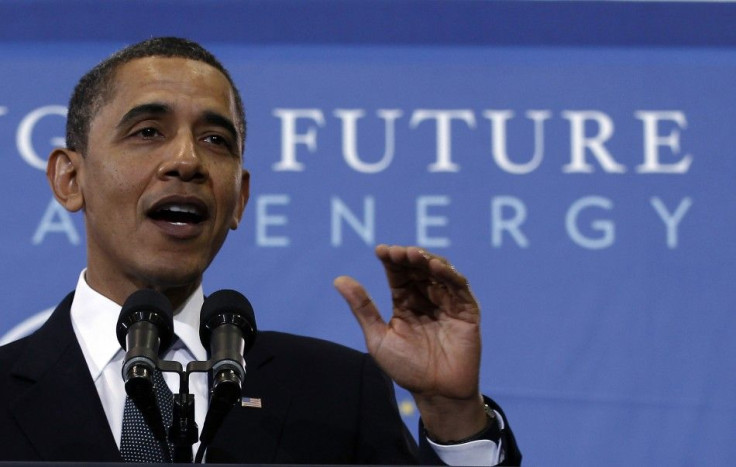Get Serious Now on Long-Term Global Energy Needs, Obama Says

President Barack Obama told U.S. students on Wednesday that with rapid growth in China and India, global demand for energy will continue to increase and a solution for reducing U.S. dependence on imported oil would require long term solutions, setting out goals for reducing oil imports decades from now.
So here's the bottom line - there are no quick fixes. And we will keep on being a victim to shifts in the oil market until we get serious about a long-term policy for secure, affordable energy, Obama said in a speech at Georgetown University in Washington D.C.
Obama's speech presented a long-term vision that would shift away from the U.S. oil industry in next two decades but also acknowledging that imported oil will remain an imported part of our energy portfolio for quite some time.
He pledge to the oil industry that he would speed up the process of giving out drilling companies meeting tighter rules in the wake of last year's massive BP oil spill.
However he also highlighted a lack of development at existing land leases as the country.
Obama is pushing for the emergence of 'clean energy' industries linked to nuclear power, 'clean coal,' natural gas, biofuels, wind and solar power.
On Wednesday, Obama called for the reduction of oil imports by one-third by 2025. He also reiterated a call to 80 percent of the nation's electricity come from clean energy sources by 2035.
Obama noted he has pledged to reduce U.S. dependency on oil much like Presidents and politicians have done for decades.
I'm proud of the historic progress we've made over the last two years towards that goal. But we've also run into the same political gridlock and inertia that's held us back for decades, he said.
Obama said his goal for reducing imports was reasonable, achievable, and necessary.
When I was elected to this office, America imported 11 million barrels of oil a day. By a little more than a decade from now, we will have cut that by one-third, he said.
Obama said he set the goal knowing that imported oil will remain an important part of our energy portfolio for quite some time.
Oil Industry Challenges
The White House on Wednesday, ahead of the speech highlighted a report by the Department of the Interior showing onshore and offshore leases where leaseholders are not exploring or developing oil.
A total of 57 percent of all leased onshore acres and 70 percent of offshore leased acres are inactive, the White House said, citing a report by the Department of the Interior.
Right now, the industry holds tens of millions of acres of leases where it's not producing a drop - sitting on supplies of American energy just waiting to be tapped. That's why part of our plan is to provide new and better incentives that promote rapid, responsible development of these resources, Obama said.
Obama said, however that even drilling every drop of oil out of all the U.S. oil reserves still wouldn't be enough to meet our long term needs.
One fifth of the nation's electricity comes from nuclear energy, Obama noted Wednesday. The administration has not indicated a shift away from nuclear energy in the wake of Japan's nuclear crisis triggered by a tsunami which knocked out backup power to one of its plants.
The administration is currently conducting a safety review of the nation's nuclear power plants. An international framework the U.S. is working on with other countries seeks to prevent the distribution of dangerous nuclear materials and technology to potential unstable or unfriendly countries or terrorists.
On natural gas safety, so-called fracking techniques to extract gas from shale should involve more communication between industry experts, environmental activists, and states, the White House said. Obama on Wednesday said he had tasked the head of the Department of Energy to team up with the various invested parties to improve safety of the techniques.
The administration is also taking steps to move the auto industry shift away from gasoline powered cars.
The White House said Wednesday standards for fuel economy and greenhouse gas emissions should be finalized by July. The standards are meant to cut oil use and promote alternatives.
The shift toward electric cars may also be highlighted. The Administration wants Congress to pass a $7500 tax credit for electric car buyers, grants for communities hospitable to such cars, and more money for research into batteries.
On the biofuels front over the next two years, the administration wants to break ground on at least four commercial-scale cellulosic or advanced bio refineries.
© Copyright IBTimes 2024. All rights reserved.




















